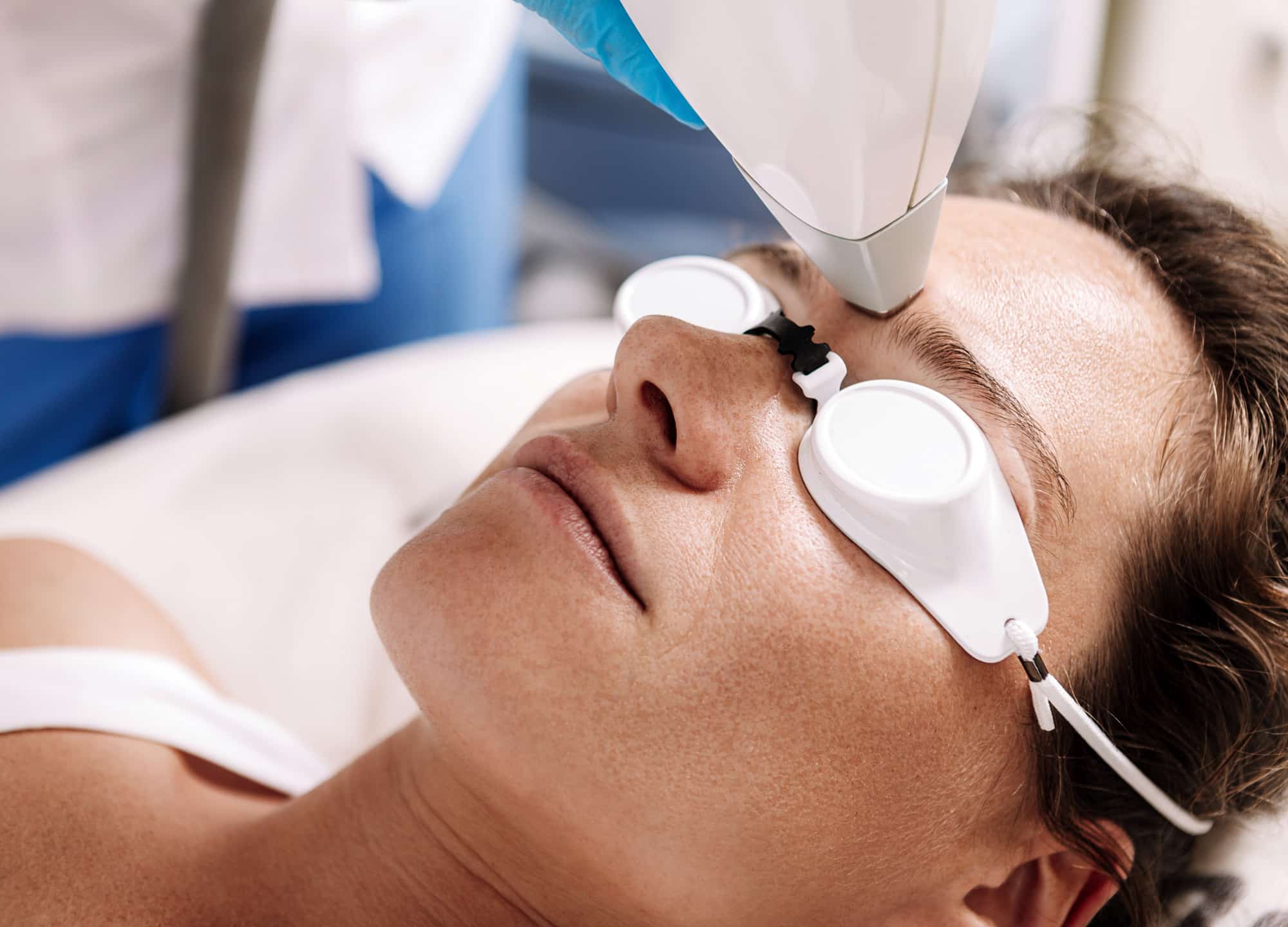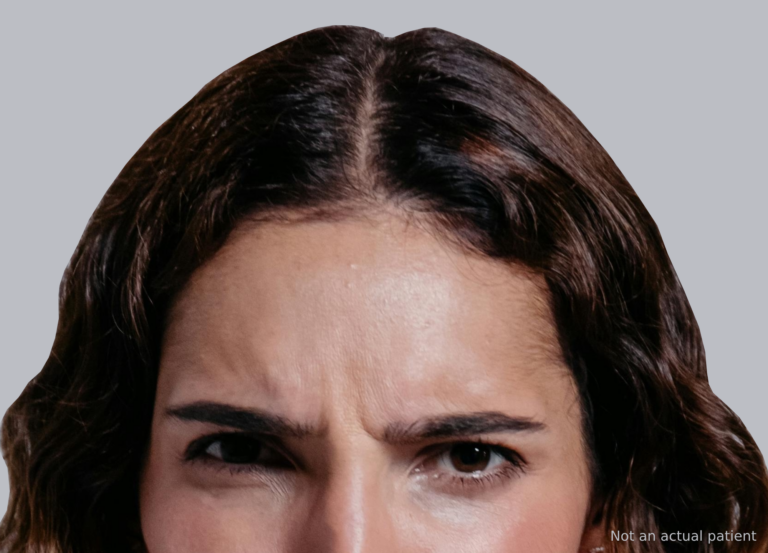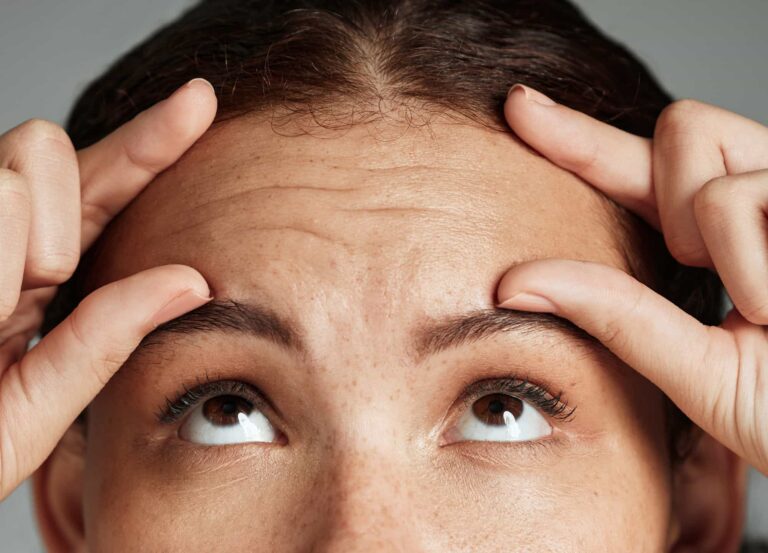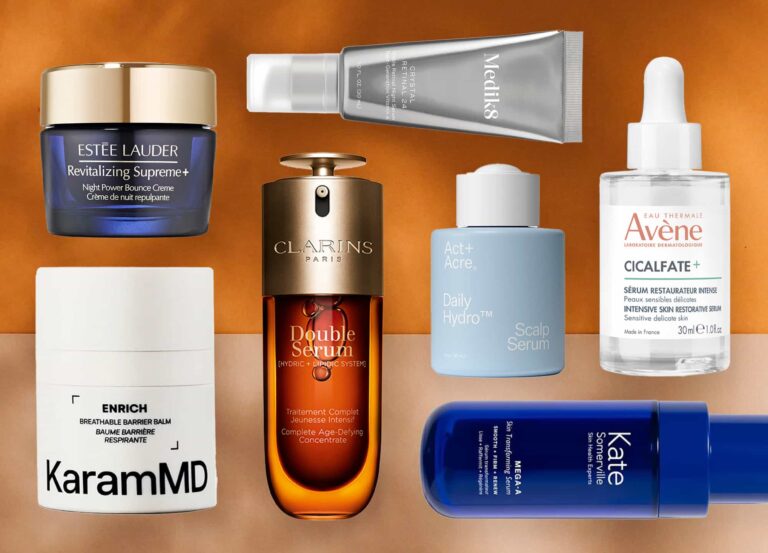According to the RealSelf 2019 Trends in Medical Aesthetics report, laser treatments, like the Halo laser, have seen a major increase in consumer demand over the past year. Lasers can treat a number of skin concerns, including discoloration, acne scarring, and enlarged pores, and more folks than ever are now choosing to sport protective goggles and numbing cream in search of a clearer, brighter complexion.
There are many types of lasers on the market, so your procedure prep will vary. “Each treatment is different for each patient, and we recommend talking to your provider about all possible outcomes and what to expect post-procedure,” suggests Greenwich, Connecticut, board-certified dermatologist Dr. Kim Nichols. “You can avoid being surprised by the result by sitting and planning with your provider.”
While speaking with your doctor pre-treatment is the best course of action, below you’ll find a few general guidelines to follow for any type of laser.
Wash your face
“I recommend coming in with a clean face—no makeup!” says Beverly Hills, California, board-certified dermatologist Dr. Ava Shamban. “Coming in with makeup can delay your appointment, as you then have to take it off. It’s also better to come in with a clean face, to avoid irritation.”
Seek shade
Whether you’re located in sunny California or freezing your butt off in snowy New York, every dermatologist wants you to apply sunscreen daily and avoid the sun before your next appointment. “Stay out of the sun—a tan may increase your risks of side effects from a laser treatment,” says Dr. Sejal Shah, a board-certified dermatologist in New York City.
Related: 5 Ways Doctors Lessen the Pain of Injectables, Lasers & Devices
Consider an antiviral
“If you are prone to cold sores, your provider may recommend taking an antiviral medication before treatment, to prevent any outbreaks,” says Dr. Nichols. Regardless of your medical history with cold sores, you should still inquire about whether an antiviral is necessary pre-appointment in order to avoid any potential outbreaks. “This is one of many reasons it’s so important to see a board-certified provider [who can write prescriptions],” Dr. Nichols adds.
Put down the exfoliants
As a general rule, avoid exfoliants before your laser appointment. “If you are using retinoids, acids, or exfoliating ingredients, let your [provider] know, as they may advise you to stop a few days before the treatment, depending on the laser,” says Dr. Shah. “Things like glycolic acid and retinol typically cause the skin to be more sensitive, which makes the skin more susceptible to irritation when using a laser,” explains Dr. Nichols. Dr. Shah also recommends avoiding any deep-peel treatments for four weeks before your laser appointment, for the same reason.
Resist any blood thinners
“To avoid bruising, don’t take aspirin, NSAIDs, or any other medication that can thin the blood, if possible,” says Dr. Shah. If you’re really concerned about pain, Dr. Shamban says it’s okay to take Tylenol for discomfort before treatment, if needed, and that you should ask for numbing cream the day of your appointment (it makes a major difference in patients’ level of comfort during laser treatments).
Related: 10 Popular Treatments That Didn’t Exist Before 2010
Don’t be so (photo)sensitive
“Avoid taking Accutane, prednisone, and some antibiotics before your laser treatment, as these can make the patient sensitive,” says Dr. Shamban. According to Dr. Nichols, some prescription medication may cause photosensitivity or general skin sensitivity. “Patients need to disclose their full medical history to their [provider],” says Dr. Nichols.
Nix the nightcap
While “no drinks or foods act as contraindications when consumed before a laser treatment,” Dr. Nichols says that “alcohol consumption before any procedure can slightly increase bruising.” So as tough as it may be, try to avoid that glass of wine the evening before your treatment.











